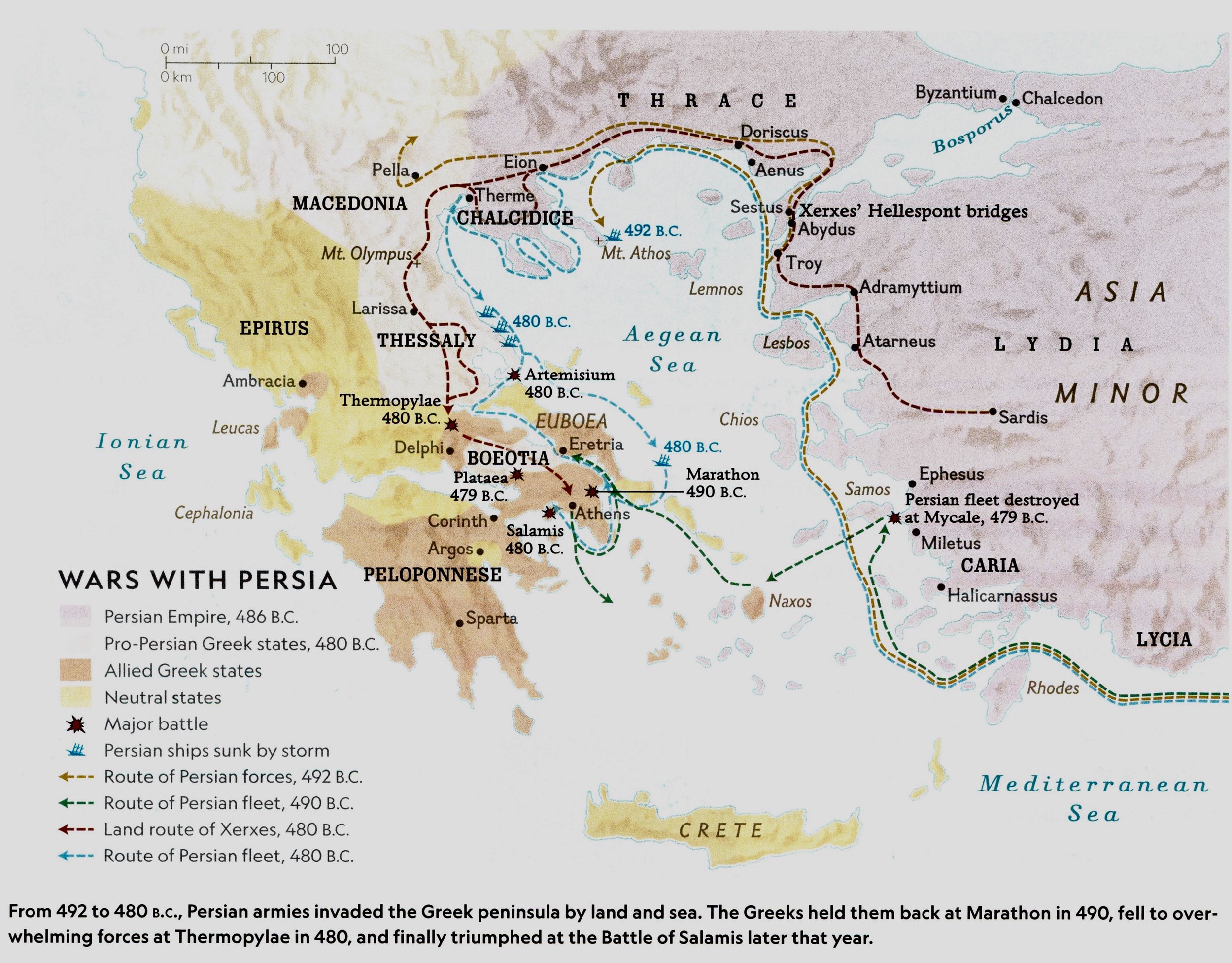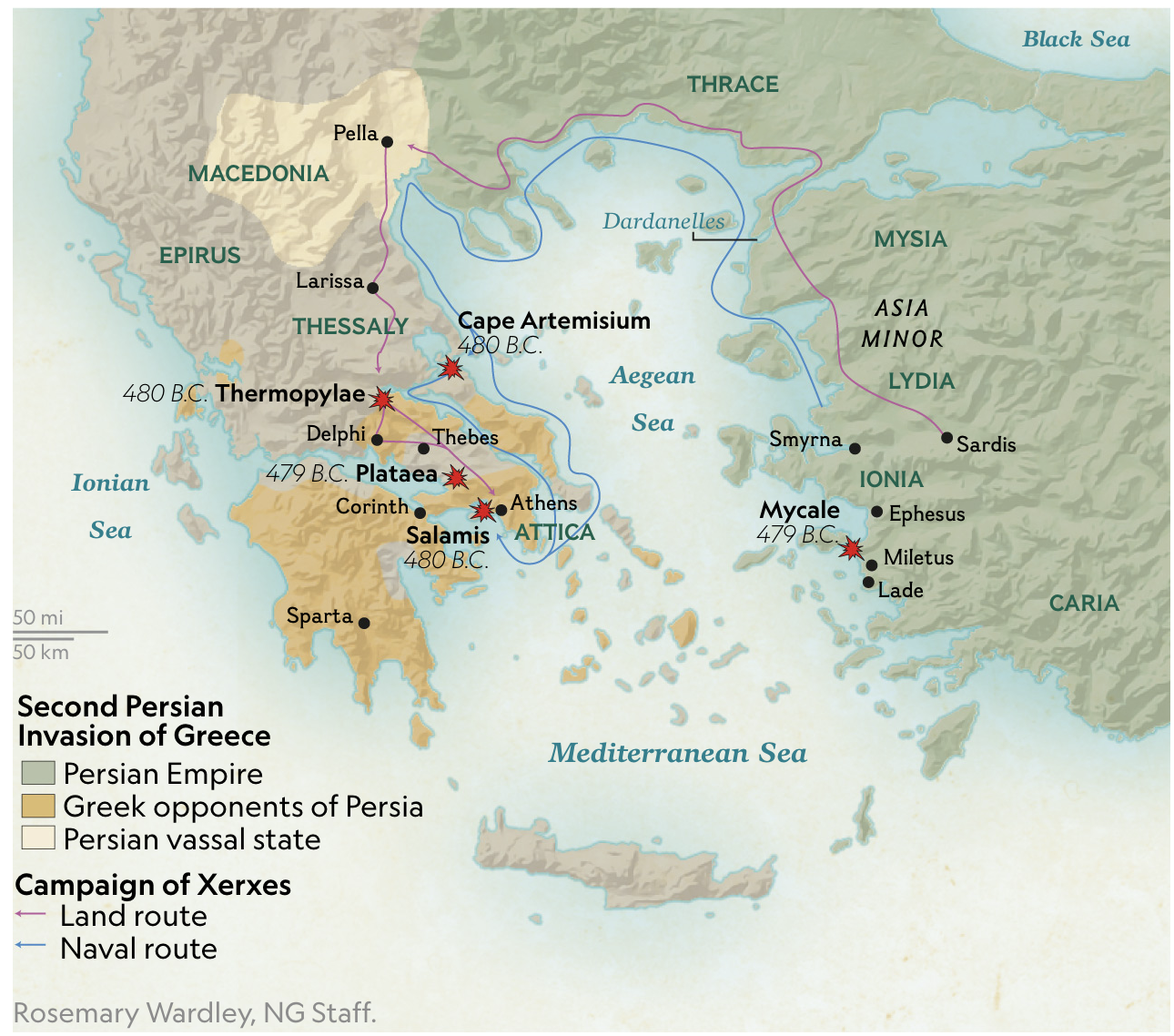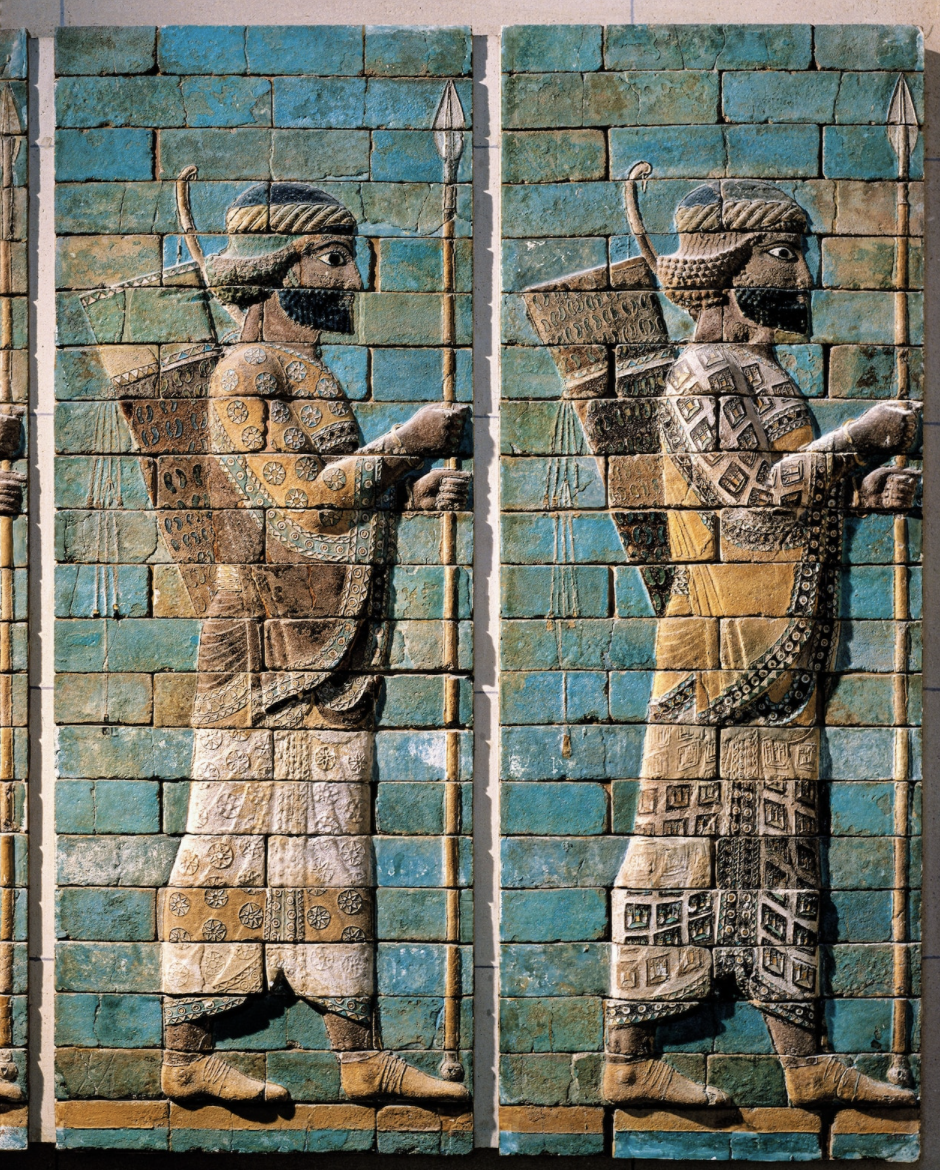Gates of Fire by Pressfield
Ref: Steven Pressfield (1999). Gates of Fire. Bantam.
_________________________________________________________________
Summary
Gates of Fire is a fictional account of the infamous Battle Of Thermopylae in 480 BCE between Greek States led by Spartan King Leonidas and his 300, and a Persian Invasion Force led by King Xerxes numbering in the hundreds of thousands. The book details the training, lives, and leadership of the Lacedaemonians (Spartans) in accordance with their warrior ethos, focusing on the battle of Thermopylae and culminating with the defeat of Xerxes Persian Forces at the Platea.
_________________________________________________________________
Misc Quotes
Esoterike Harmonia: a state of self-composure which the exercises of the phobologia are designed to produce.
Exoterike Harmonia: guides the phalanx to move and strike as one man, of a single mind and will (group flow).
Katalepsis (aka possession): Derangement of the senses that comes when terror or anger usurps dominion of the mind; what the Spartans shunned worst in battle. This, I realized, was the role of the officer: to prevent those under his command, at all stages of battle- before, during, and after- from becoming “possessed.” To fire their valor when it flagged and rein in their fury when it threatened to take them out of hand.
“Valor must be tempered with wisdom or it is merely recklessness.”
“I and every man there were never more free than when we gave freely obedience to those harsh laws which take life and give it back again.”
“The habit of fear and anger, or the habit of self-composure and courage.”
“Truth is an immortal goddess. One would be wise to consider before defaming her.”
“And that rage, re-fired within the forge of each man’s secret heart, now hardened into a resolution of such blistering infamy that death itself seemed a trifle alongside it.”
“A dynamism of optimism and enterprise fired each man with belief in himself and his gods. Each citizen warrior who had endured trial of arms in the phalanx or pulled an oar under fire on the sea now deemed himself deserving of full inclusion in all affairs and discourse of the city. That peculiar Hellenic form of government, called Democratia, rule of the people, had plunged its roots deep, nurtured by the blood of war; now with victory the short burst forth into full-flower. In the assembly and the courts, the marketplace and the magistracies, the commons thrust themselves forward with vigor and confidence.”
_________________________________________________________________
Leadership
Let no Officer keep to himself or his brother officers, but circulate daylong among his men. Let them see you and see you unafraid. Where this is work to do, turn your hand to do it first; the men will follow. Keep your men busy. If there is no work, make it up, for when soldiers have time to talk, their talk turns to fear. Action, on the other hand, produces the appetite for more action.
I will tell his majesty what a king is. A king does not abide within his tent while his men bleed and die upon the field. A king does not dine while his men go hungry, nor sleep when they at watch upon the wall. A King does not command his men’s loyalty through fear nor purchase it with gold; he earns their love by the sweat of his own back and the pains he endures for their sake. That which comprises the harshest burden, a king lifts first and sets down last. A king does not require service of those he leads but provides it to them. He serves them, not they him.
_________________________________________________________________
Comradery
“Knowing the fear that stands unspoken in each heart- not of death, but worse, of faltering or failing, of somehow proving unworthy in this, the ultimate hour.”
“Fear conquers fear. That is how we Spartans do it, counterpoising to fear of death a greater fear: that of dishonor, of exclusion from the pack.”
“For what can be more noble than to slay oneself? Not literally. Not with a blade in the guts. But to extinguish the selfish self within, that part which looks only to its preservation, to save its own skin. When a warrior fights not for himself, but for his brothers, when his most passionately sought goal is neither glory nor his own life’s preservation, but to spend his substance for them, his comrades, not to abandon them, not to prove them unworthy of them, then his heart truly has achieved contempt for death, and with that he transcends himself and his actions touch the sublime.”
“Here is what you do, friends. Forget country. Forget King. Forget wife and children and freedom. Forget every concept, however noble, that you imagine you fight for here today. Act for this alone: for the man who stands at your shoulder. He is everything, and everything is contained within him. That’s all I know. That’s all I can tell you.”
“Those mates drawn dearer than brothers by the shared ordeal of arms.”
_________________________________________________________________
Combat
“Mankind as it is constituted,” Polynikes said, “is a boil and a canker. Observe the specimens in any nation other than Lacedaemon. Man is weak, greedy, craven, lustful, prey to every species of vice and depravity. He will lie, steal, cheat, murder, melt down the very statues of the gods and coin their gold as money for whores. This is man. This is his nature, as all the poets attest. “Fortunately God in his mercy has provided a counterpoise to our species innate depravity. That gift, my young friend, is war. “War, not peace, produces virtue. War, not peace, purges vice. War, and preparation for war, c all forth all that is noble and honorable in a man. It unites him with his brothers and binds them in selfless love, eradicating in the crucible of necessity all which is base and ignoble. There in the holy mill of murder the meanest of men m ay seek and find that part of himself, concealed beneath the corrupt, which shines for brilliant and virtuous, worthy of honor before the gods. Do not despise war, my young friend, nor delude yourself that mercy and compassion are virtues superior to andreia, to manly valor.”
“A field upon which a man may display by his deeds the nobility denied him by his birth.”
Dance Floor (aka the Battlefield)
“A form of courage enters the heart which is not courage but despair and not despair but exaltation. On that second day, men passed beyond themselves. Feats of heart-stopping valor fell from the sky like rain, and those who performed them could not even recall, nor state with certainty, that the actors had been themselves.”
_________________________________________________________________
Death
“Others, barbarians primarily, say that when we die we pass on to paradise. I ask them all: if you really believe this, why not make away with yourself at once and speed the trip?”
“Cowards would be rarer than feathers on fish if we all knew that (immortal).”
“I and every man there were never more free than when we gave freely obedience to those harsh laws which take life and give it back again.”
_________________________________________________________________
Women
“I am at ease, lady. Truly. It’s a relief to be away from the barrack life for an hour, even if it means dancing barefoot on the hot steel of the skillet (women’s gossip).
“That expression born of feminine wisdom which apprehends truth directly, through the blood, unobscured by the cruder faculty of reason.”
“My heart finds courage from these, our women, who watch in tearless silence as we go. Men’s pain is lightly borne and swiftly over. Our wounds are of the flesh, which is nothing; women’s is of the heart - sorrow unending, far more bitter to bear.”
“This is women’s trial and triumph, ordained by god: to abide with pain, to endure grief, to bear up beneath sorrow’s yoke and thus to endow others with courage.”
_________________________________________________________________
Chronology
Fall, 480: The Battle of Thermopylae.
_________________________________________________________________



